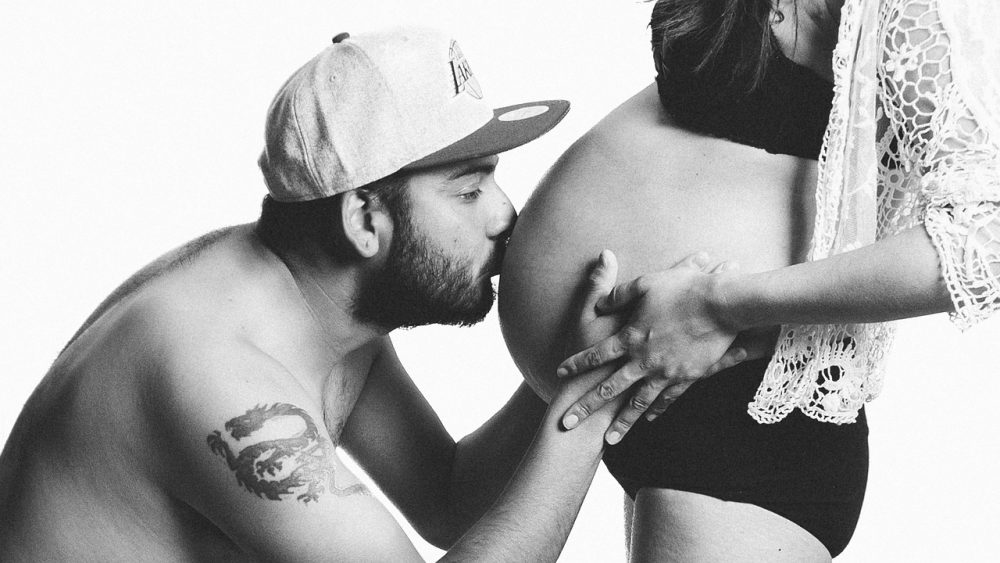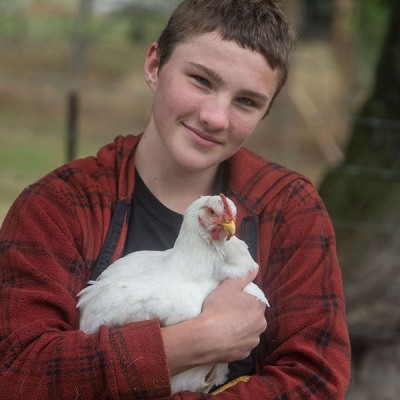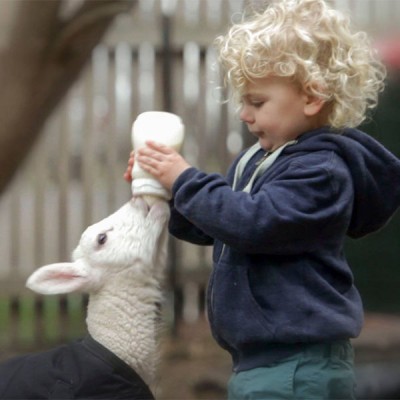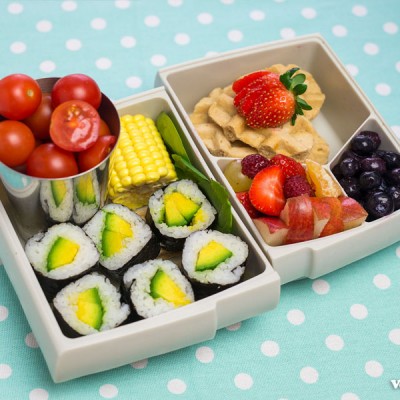Nutrition for a Healthy Pregnancy
Depending on body size, most pregnant vegan women need between 75 and 85 grams of protein per day...

Depending on body size, most pregnant vegan women need between 75 and 85 grams of protein per day. It’s easy to meet those needs by including five servings per day of legumes in your diet. A serving of legumes is 1/2 cup of cooked beans, tofu or tempeh, 3 ounces of veggie meat, 1 cup of soymilk, 1/4 cup peanuts or soynuts, or 2 tablespoons of peanut butter. You’ll also get protein from the grains, nuts, seeds and vegetables in your diet.
Iron needs also increase in pregnancy. And, because iron is less available from plant foods compared to meat, needs can be quite a bit higher for vegans. Although it’s not clear just how much iron a pregnant vegan needs, it could be as much as 50 milligrams per day. Fortunately, plant foods are packed with iron. And eating foods that are rich in vitamin C will boost iron absorption. Even so, most pregnant women, including those who eat meat, take an iron supplement and chances are that your doctor will want you to do so, too. It’s still important to eat plenty of iron-rich foods like beans, dried fruit, leafy green vegetables, seeds, soy foods and whole grains and to include good sources of vitamin C at as many meals and snacks as possible. The best sources of vitamin C are citrus fruits, leafy green vegetables, broccoli, cauliflower, strawberries and peppers.
Absorption of zinc is also lower from plant foods compared to animal foods. Including some whole grain bread in your diet is a good way to get plenty of well-absorbed zinc, since leavening frees up zinc for absorption. Be sure that your diet includes plenty of zinc-rich foods such as wheat germ, cashews, mushrooms, quinoa, seeds, legumes, peanut butter, and tahini.
Since absorption of calcium increases with pregnancy, needs are the same for pregnant and non-pregnant women. Calcium is important, though, so make sure you’re including several good sources of this nutrient. Best choices for vegans are calcium-set tofu (the type of tofu made with calcium sulfate), fortified plant milks, bok choy, collard greens, kale, figs, almond butter, and blackstrap molasses.
Vitamin D needs don’t change with pregnancy either, but be sure you’re getting enough. Unless you are absolutely certain that you get regular sun exposure, it’s a good idea to take a supplement. If you use sunscreen, that will block synthesis of vitamin D in your skin, so keep that in mind when you consider the need for supplementation.
Hopefully, you’ve already been taking a vitamin B12 supplement, but if not, this is definitely the time to start. Plant foods don’t have B12 unless they are fortified with it and a lack of this vitamin can have serious consequences for your baby. The easiest way to get adequate B12 is to take a supplement providing between 25 and 100 micrograms per day. Look for supplements that contain cyanocobalamin, which is preferred over methylcobalamin.
Your vegan diet should provide plenty of the B-vitamin folate which is especially abundant in beans, peanuts, and leafy green vegetables as well as some fruits like orange juice. All breads (except some organic) are also folate fortified in Australia since 2009.
But getting enough folate is crucial, especially in the early part of pregnancy. In the US your doctor may want you to take a supplement of folic acid (the form of folate that is used in vitamin pills) since most health professionals believe it’s a good idea to have a little extra. However, in Australia, recommendations advise folic acid supplements for all women of child bearing age.
Make sure your diet includes a small daily serving of a food rich in alpha-linolenic acid, which is the essential omega-3 fat. The best sources are ground flaxseed or flaxseed oil, chia seeds, hempseeds or hempseed oil, canola oil, and walnuts. You don’t need much of these foods—just 1/3 of a cup of walnuts or 1 ½ teaspoons of flaxseed oil is enough. We still have questions, however, about the long-chain omega-3 fats DHA and EPA. These are the ones that are found in fish, and we don’t have good information about whether pregnant women need them or not. To be on the safe side, it’s a good idea to take a small vegan supplement (it’s derived from algae) of these fats every day, about 300 milligrams of DHA and EPA combined.
Finally, chances are that you’re getting lots of iodine in your diet since vegetables take it up from the soil. But since the iodine content of these foods varies depending on where they are grown, a few shakes of iodized salt on foods can be a good idea. If you don’t use iodized salt, consider a small supplement of this nutrient, about 90 micrograms every other day.
Article by Ginny Kisch Messina, MPH, RD. For further information on vegan diets for kids please contact Ginny at www.theveganrd.com
Recent Articles
-

Tips for vegans with non-vegan parents
One of the challenges we face when transitioning to living as a vegan is navigating the relationships with those we hold close. Unfortunately just because our family loves us, doesn’t necessarily mean that they are going to make the same connections that we have made between the food we eat and the animals that we care about. Sadly, they may never become vegans themselves.
-

Vegan At School… (Teen Edition)
It is important to keep supporting your teenager throughout their high school years, now that they are becoming more independent they can start advocating for veganism themselves.
-

Vegan At School… (Primary Edition)
There are a few important things you can do to help your vegan child begin their kindergarten or primary school years stress free.
-

Talking About the Reality of Being Vegan: The Easy Way
Speak to children about veganism and animal rights with the view that their perspective will be to become empowered to create positive change.
-

When your child says they are going… VEGAN!
Don’t panic.
-

The Vegan Lunch Box
Are you looking to include kinder choices in your children's lunchboxes, but unsure how to make it work for school? Need some tips and tricks to get you started? We have the solution, and it’s exciting, healthy and quick (no lies!).
Leave a Comment